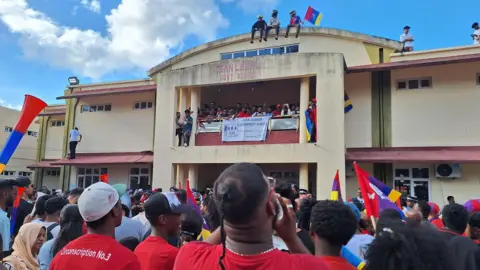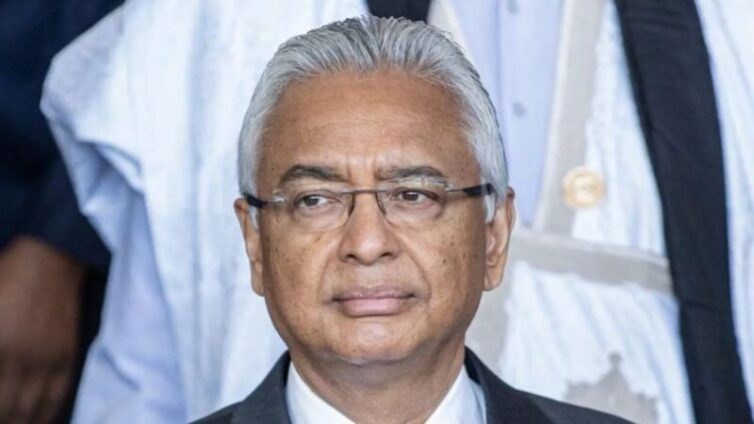The prime minister of Mauritius has accepted that his coalition, L'Alliance Lepep, has suffered a "huge defeat" following Sunday's parliamentary election.
"The population has decided to choose another team," Prime Minister Pravind Jugnauth, 62, told journalists on Monday.
Jugnauth was seeking a second five-year term, but his main rival, Navin Ramgoolam, 77, leader of the Alliance of Change coalition, looks set to become the next leader of the Indian Ocean archipelago.
Mauritius is known as one of Africa's most stable democracies, but this election was tainted by a phone-tapping scandal, with leaked recordings of public figures posted online.
In response, the government issued a social media ban until after the election, although this led to an outcry and the decision was reversed within 24 hours.
Final results are yet to be released but Ramgoolam's party looks set to win.
Ramgoolam, a former doctor, told reporters that his party was "heading towards a huge victory", but didn't go into any further detail as he said all votes must be counted first.
"We must respect this choice... and we wish the country and the population good luck," said Jugnauth.
The mood in the capital Port Louis reflects this changing tide, as people gathered in hopeful anticipation of results that signal a fresh direction for the country.

People were dancing and singing in the streets with vuvuzelas, the national flags in their hands and fire crackers.
Ibrahim, who voted for the Alliance for Change told the BBC that "growing public dissatisfaction" was a major reason the ruling party lost.
The cost-of-living crisis has been a major issue for many Mauritians, along with a growing concern about governance and corruption.
On the campaign trail, both parties promised to improve the lives of people on the islands.
Ramgoolam - whose father was a liberation hero and has already twice served as prime minister - said he would increase pensions, introduce free transport and internet and reduce fuel costs.
Mauritius' former foreign minister and a member of the opposition coalition, Arvin Boolell, told the BBC Newsday programme the election was a "victory of the people".
Voter turnout was about 80%, according to the electoral commission.
Citizens went to the polls to elect lawmakers for the 62 seats in parliament for the next five years.
Additionally, up to eight "best loser" seats are allocated to ensure fair ethnic representation in parliament.
The vote comes after a historic agreement in which the UK gave up sovereignty over the Chagos Islands to Mauritius.
Latest Stories
-
Inter edge out Bayern to reach Champions League semis
43 seconds -
Superb Arsenal defeat Real Madrid to reach semi-finals
5 minutes -
GPL 2024/25: Young Apostles’ late goals seal win over Berekum Chelsea
10 minutes -
FIFA Club World Cup arrives in Casablanca for final African stop
14 minutes -
Level 100 student allegedly commits suicide after partner cheats on him
2 hours -
Tariffs will hit US economy and raise prices, says Fed boss
3 hours -
Muster courage and go by dictates of report – Dr Asah-Asante to NPP
5 hours -
Minority urges Mahama to act on Bawku security situation
5 hours -
Olive Tower Prayer Ministries, Unilever Ghana hold free health screening for 700 Pokuase M.A. Basic School students
5 hours -
Obama calls Trump’s freeze of Harvard funding ‘unlawful’
5 hours -
Albert Kobina Mensah: Observed or discovered?
5 hours -
US tariffs will make global trade shrink, says WTO
5 hours -
UK bans EU cheese and meat imports to prevent disease spreading
5 hours -
NPP to begin nationwide Thank You Tour after 2024 election defeat
5 hours -
GPL 24/25: Aduana Stars defeat spiritless Hearts of Oak
5 hours

